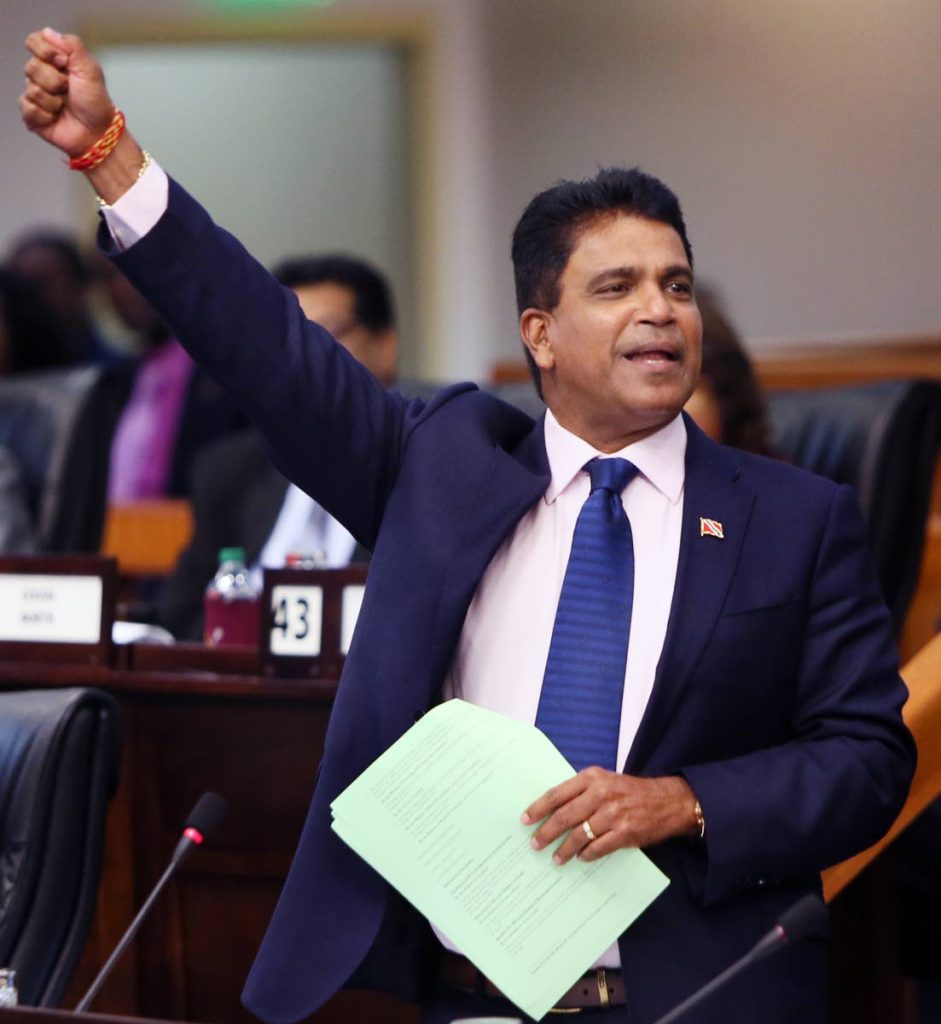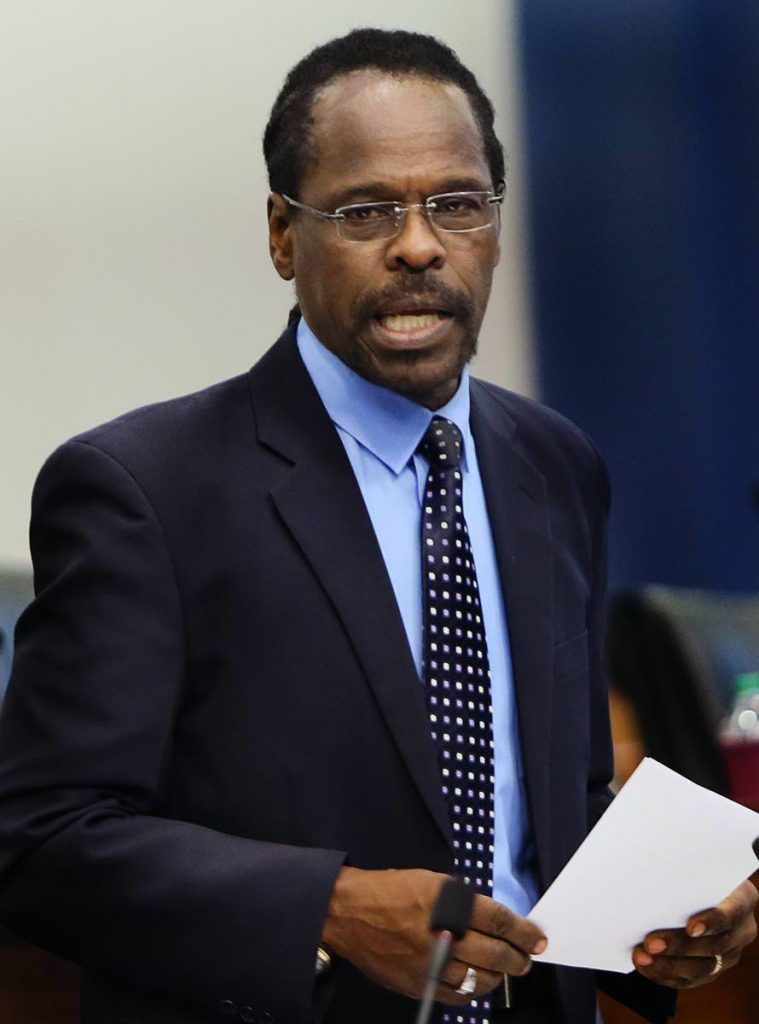SSC split over CoP selection process

THE Police Service Commission (PSC) nominated to the House of Representatives Deodath Dulalchan as Commissioner of Police (CoP) and Harold Phillips as deputy commissioner.
After allegations of a land-grab by Dulalchan, a House special select committee (SSC) probed the PSC’s process of selecting a CoP and Deputy.
Last Friday, SSC chairman Fitzgerald Hinds laid the committee’s report in the House, but Opposition members of the SSC Dr Roodal Moonilal and Ganga Singh issued a minority report to the apparent surprise of the SSC’s Government members. MPs Nicole Oliverre, Randall Mitchell and Terrence Deyalsingh were the remaining members of the SSC.

Fitzgerald Hinds
Central to the disagreement between the two sides is the 2016 High Court judgement by Justice Peter Rajkumar in the case of Harridath Maharaj vs the Attorney General that affirmed the PSC’s independence and autonomy in the CoP selection, free of the Central Tenders Board Act and original 2015 order by which the line minister helped trigger the process. Critically, the judgement urged the PSC to “own the process.”
The SSC report said recruiters, known as “the firm”, had a $3.2 million contract to interview candidates. Of 54 applicants, 50 were eligible. After screening, the PSC advanced 20 candidates to Stage 1 of the Assessment, consisting of psychometric evaluation (10 per cent), panel interview (50 per cent), written case study (10 per cent), role play (15 per cent) and role fit (15 per cent). Commissioners Anthony Franklin and Dinanath Ramkissoon participated in the panel interview and role play exercises.
After several weeks of deliberations by the parliamentary committee the conclusions drawn by the surprise minority report seem to completely refute the findings of the SSC report.
The conclusions drawn by the SSC report were as follows:
1. “Direct involvement of members of the PSC in the assessment stage of the process was not what was contemplated in the Order made pursuant to the Constitution.”
2. In many respects the PSC’s process “was defective and unreliable and may expose the PSC to allegations of arbitrariness and lack of transparency.”
3. The SSC lacked full consensus, as a minority believed that “the flaws in the process were not fundamental so as to render it unfair and arbitrary.”
On the other hand, the minority report itemised the following findings:
1. “There is a presumption of regularity in the conduct of public bodies unless mala fides can be proven.” Without such findings, the PSC acted in good faith.
2. “At all material times the PSC sought and obtained legal advice on their role, involvement and boundaries. It was commendable.”
3. “The PSC did not breach the Legal Notice or the Constitution and acted within the contents of the judgement of the High Court.”
4. Any possible shortcomings in recruitment strategies “were not fatal and cannot nullify the outcome,” and, “It would be a colossal waste of money and time to embark on this process again.”
5. “Given the above we are of the view that the notifications from His Excellency the President should be affirmed by the House of Representatives.”
The two reports continued to disagree on the decision of the PSC to have the CoP and Deputy candidates interviewed in a single pool as a part of the selection process. While the SSC report claimed, “It is inconceivable that the role of CoP and DCoP require identical behaviours,” the minority report insisted, “It made sense to adopt this approach rather than run 20 candidates through two sets of tests. The core competencies and skill set required for both positions were almost identical and they explained this fully. The government and opposition members of the SSC also disagreed on the decision of the PSC to involve two of its members directly in the assessment stage at the level of The Firm even as Justice Rajkumar, in his 2016 judgement, urged the PSC to “own the process.”
The SSC report said while clients might help design the selection process and observe it, their direct involvement “raised serious concerns” about subjectivity arising from such participation and whether PSC were sufficiently trained for their involvement. The minority report offered a different point of view. It said that just one cmmissioner on a panel of five to seven interviewers, the sole PSC member could not influence a final selection of anyone. The minority report added that, by using a hybrid approach, the PSC had “owned the process” while The Firm carried out the leg work and, as a result, “The PSC did not violate the law.”
The SSC report went on to note that two commissioners had each worked with a candidate 20 years and ten to 15 years ago respectively, but the PSC denied any biases. That report also lamented the non-use of a polygraph on candidates and the lack of public advertisements as was done for new recruits.
The minority report, however, called it a “troubling matter” that a complaint to the Police Complaints Authority (PCA), dormant for six years, had sprung to life when a person became a candidate for CoP. It claimed SSC was never told by the PSC that it had received a 2012 letter from a PCA officer urging that the matter be dropped.
The minority report also criticised “nitpicking or hair-splitting” over the selection process.


Comments
"SSC split over CoP selection process"